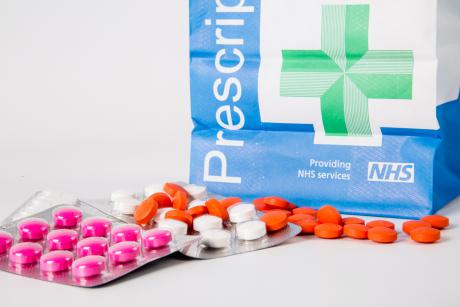By MORTEN THAYSEN 5 November 2017 for openDemocracy
Drug prices are soaring, crippling our NHS [1]. And Big Pharma’s defence (‘research is expensive’) omits one crucial fact…
As he became ‘the most hated man on the Internet’ last year, ‘pharma-bro’ Martin Shkreli repeatedly claimed that by hiking the price of HIV drugs he wasn’t doing anything out of the ordinary. Squeezing health services and patients for every last penny is just how the pharmaceutical industry works. And that’s perhaps the only thing he was right about.
While multinational drug companies have turned themselves into one of the most profitable industries in the world, they have peddled the lie that they’re charging eye-watering prices for their life-saving products because it costs a fortune to research and develop them. What they didn’t tell us is that much of that research is publicly funded in the first place.
A new report, Pills and Profits, by Global Justice Now and STOPAIDS has revealed that big drug companies are taking over research funded by British taxpayers and selling the resulting drugs back to the NHS to the tune of more than £1 billion a year. So we are effectively paying twice for our medicines – once to research and develop them, and again to buy the finished drugs.
This is not just a scandal of taxpayers’ money being used to prop up the profits of some of the richest corporations the world has ever seen. Corporate profiteering of public health research puts extreme pressure on NHS budgets and in some cases prevents patients from accessing the treatments they need.
That was the case with prostate cancer drug Abiraterone. The drug was largely developed with UK public funding and has proven to provide a 37% higher survival rate for some types of prostate cancer. But American Janssen Pharmaceuticals (part of the world’s biggest drug company Johnson & Johnson) bought the rights to the drug and demanded prices that left the NHS unable to afford the treatment of thousands of patients in the space of two years.
Now that it is finally available on the NHS, Janssen is charging the NHS £98 per day per patient for the drug, despite a generic alternative being available for less than £11 per day per patient. That’s a hefty mark-up on something we’ve spent substantial amounts of money developing in the first place. And Abiraterone is just one of many examples of publicly developed drugs breaking NHS budgets – others include treatments for multiple sclerosis and rheumatoid arthritis.
This is nothing less than a Great British Rip-off, where multinational pharmaceutical companies are competing to make the most extortionate profits. But it’s our health service that gets cut up in the process. Last year the NHS paid £3.8 billion more for medicines than it did 5 years before. That’s more than twice the entire NHS deficit. It is particularly infuriating as many of the most expensive drugs have received substantial research funding from the British state – including the 1st and 4th ranking on the list of most costly drugs for NHS England.
UK public health research has led to some of the biggest breakthroughs in medicine in recent decades. But the achievements of scientists at British universities should be a source of pride, not of bankruptcy. As the NHS faces another winter crisis, it is high time politicians stand up to big business and take real action to safeguard our health service. At the very least we should demand affordable prices for drugs that have received taxpayer funding. But in the long term we need to stop the privatisation of public research altogether to make sure that we develop medicines that benefit patients rather than lining corporate pockets.
Such a transformation is also urgently needed beyond this country. As the third biggest funder of medical research after the US and the EU, a change in the UK could make a massive difference to people all across the world who are priced out of access to medicines. An estimated 10 million people globally are dying needlessly every year because they cannot access the medicines they need, most of them in poor and middle-income countries. Any politician who took on that challenge could end up being the most loved person on the internet.
About the author
Morten Thaysen is campaigns and policy manager (corporates) at Global Justice Now, which is hosting a Sick Of Corporate Greed speaker tour from 31 October to 9 November 2017.
1. UK National Health Service










